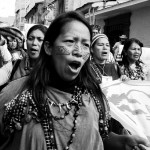David Satterthwaite – Rethinking Development Finance for City “Slums”
No comments yetPolicy Innovations. October, 15, 2012. Very little aid is actually available to low-income urban groups and grassroots organizations. If it is, it is subject to the conditions and priorities established by the aid provider. The Asian Coalition for Community Action (ACCA) is challenging this funding model by providing small grants to low-income communities for the initiatives they choose and supporting these communities to work together and work with their local governments.
Around one in seven of the world’s population lives in informal settlements in urban areas. City economies would collapse without their labor and the goods and services from informal enterprises—yet city governments often ignore them or see them only as a problem. In the absence of support from local governments, aid agencies, or development banks, they have had to manage by themselves. They’ve built a high proportion of all new housing in informal settlements with insecure tenure because they cannot get land legally and have often built on land ill-suited to housing because they were not allowed to settle on good quality land. They struggle to cope with problems such as regular flooding, and face high levels of fire risk (caused by widespread use of candles, kerosene lamps, and stoves in houses constructed from flammable materials located very close together). They face the constant threat of eviction—or actual eviction.
The Asian Coalition for Community Action (ACCA) sees these people, and the grassroots organizations they form, as the basis for urban development.
Read more: D. Satterthwaite – Rethinking Development Finance for City “Slums”
You May Also Like
Comments
Leave a Reply






